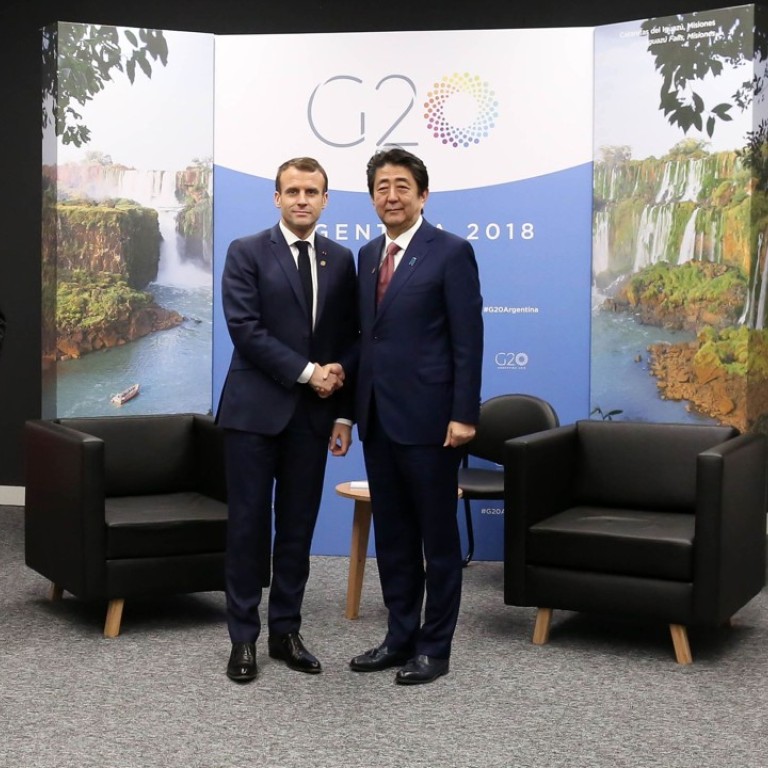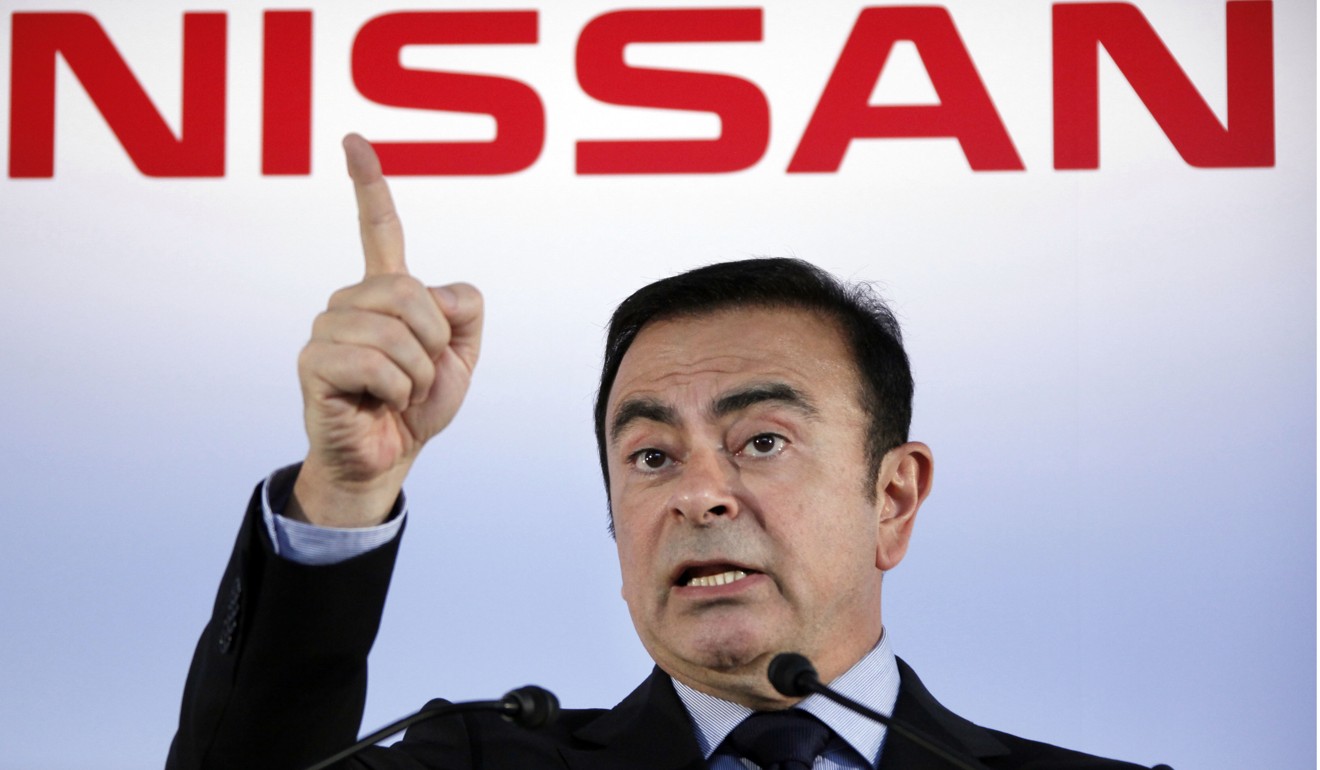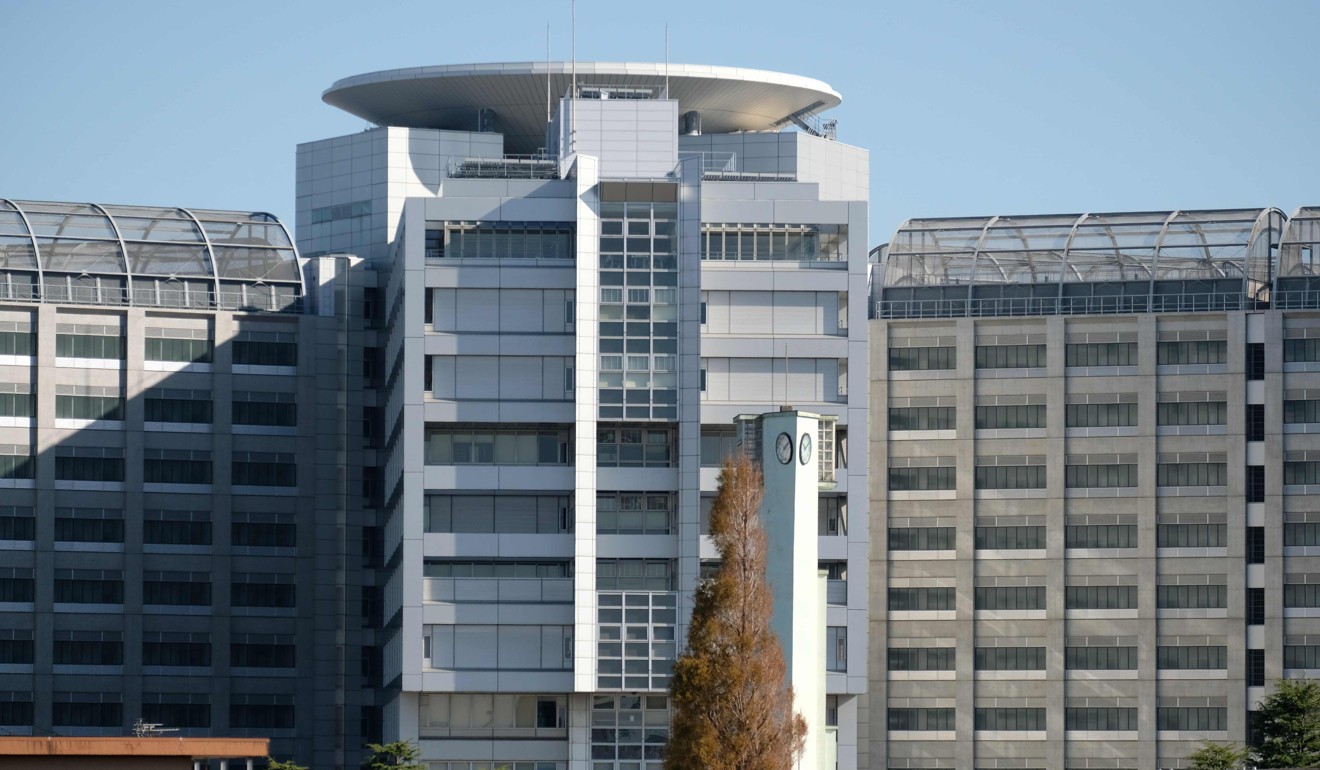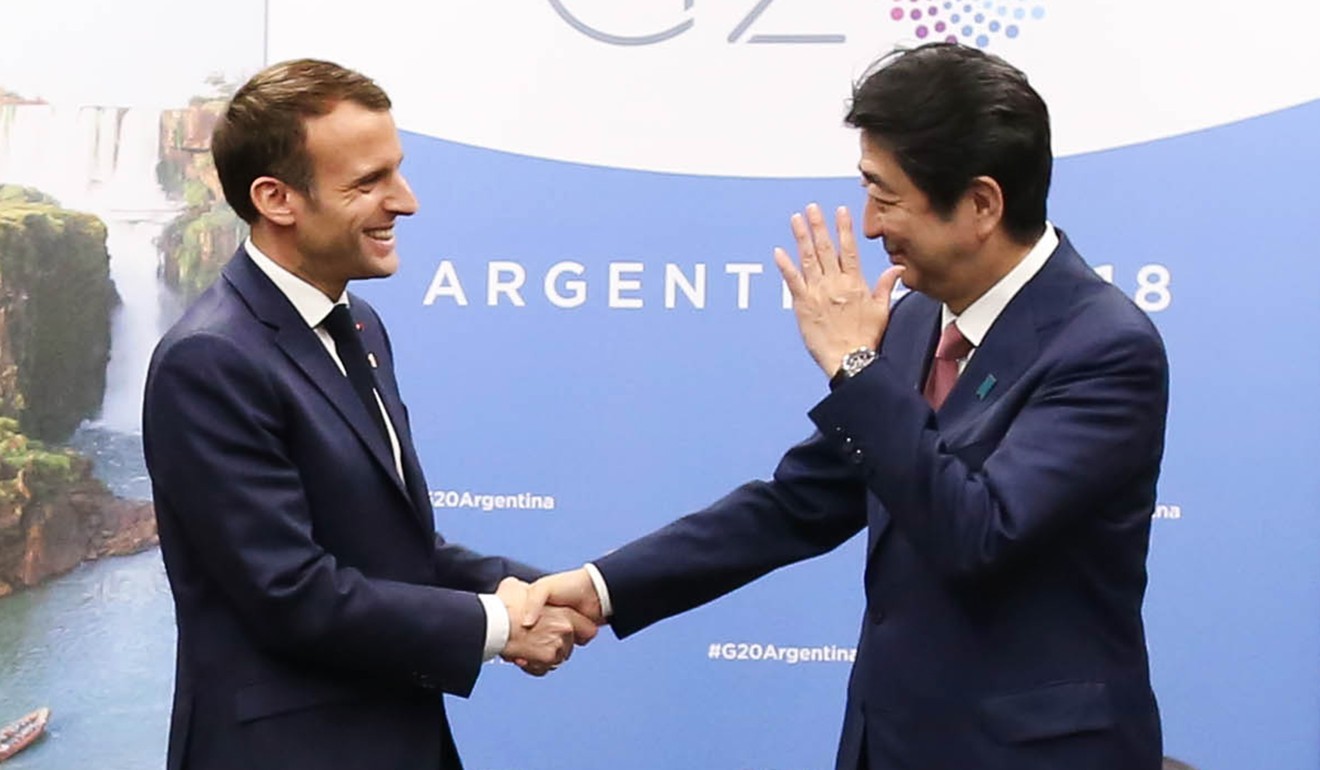
Macron tells Abe he wants to keep Renault-Nissan alliance
- Pact gives more weight to France than Japan and French carmaker is a vital part of embattled French leader’s effort to revive his country as an economic power
French President Emmanuel Macron told Japanese Prime Minister Shinzo Abe he wants to maintain the alliance between Renault and Nissan Motor after the arrest of Carlos Ghosn, who led the partnership.
“The exchange on Renault was succinct, with only the reminder that the legal procedure had to follow its course,” the president’s office said after the leaders met on Friday on the sidelines of the Group of 20 summit in Buenos Aires. Macron “reiterated his commitment to preserving the alliance as well as the stability of the group”.

Abe told Macron the future of the Nissan-Renault alliance should be decided among the companies and not by the government, Nikkei reported, citing the Japanese government.
Macron and Abe met just hours after Japanese prosecutors extended the detention of Ghosn by up to 10 days, said people familiar with the matter, who asked not to be identified because the information wasn’t public. He was arrested on November 19 in Japan on accusations of understating his income and misusing company funds. The Franco-Brazilian executive has denied the allegations, according to Japanese broadcaster NHK.

The arrest raised questions about the future of the alliance between Renault and Nissan that Ghosn, 64, built and oversaw for almost two decades. The pact gives more weight to Paris than Tokyo, a long-running source of frustration for the Japanese. Renault is considered a company of “vital importance” to France by the state secretariat for national security.
The French carmaker employs almost 50,000 people in France, making it a part of Macron’s effort to revive his country as an economic power. Renault owns 43 per cent of Nissan, while the Japanese carmaker has 15 per cent of Renault, without voting rights.
Going, going, Ghosn: does Nissan boss’ downfall signal the end for the Japanese carmaker?
Renault has been happy with the status quo and looking to make it permanent. The effort has been championed by its largest shareholder, the French state. Neither Renault, nor Macron’s government, knew Ghosn was going to be taken into custody last week, two officials with knowledge of the matter said earlier.

Before the meeting on Friday, an official in Macron’s office said the French president would tell Abe he wanted more information and greater transparency about the Ghosn probe.
Nissan has been eager to equalise power at the alliance level and assert Japanese control over one of the country’s most important companies, according to people familiar with the matter. That’s led to fears on the French side that Ghosn’s arrest may have been orchestrated in what amounts to a coup, a charge Nissan chief executive Officer Hiroto Saikawa has denied.
A lesson in Nissan chairman Carlos Ghosn’s downfall, for Angela Merkel and other long-serving leaders: leave when you can
Nissan and Mitsubishi Motors, which joined the alliance in 2016, have both ousted Ghosn as chairman since his arrest. Renault has so far kept him on as chairman and chief executive, while appointing Thierry Bollore to run the company temporarily.

